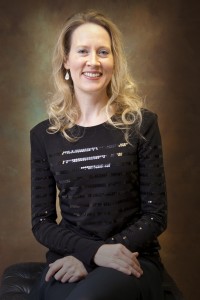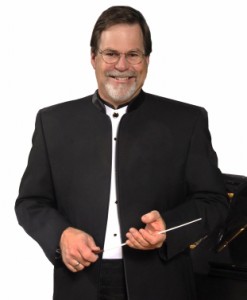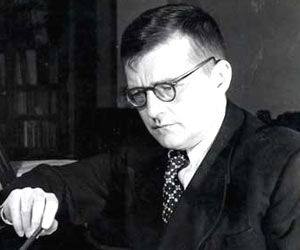The Westminster Concert Series’ new season, which begins Monday, promises its audiences another set of concerts with broad appeal. The programs stretch over several centuries and should have something for every taste.
One of the things Karlyn Bond wants to focus on with this series is getting students to attend concerts. “One of my goals as a teacher and director of the series is to seduce students into classical music,” she told Reichel Recommends. “We’re trying to build a young audience with this series, and this is a great venue for that. We’re rooted in an academic setting, it’s a small hall and, for the students, a very accessible hall, and the series features primarily faculty members.”
And with its diverse programming the series has a lot going for it. “The overarching comment I would make about his season is that we have wonderful players performing well known and lesser known works,” Bond said. “There is nothing particularly adventurous stylistically, but there is a huge amount of variety and all works are interesting.”
Monday’s concert will be an all-20th century affair. But before anyone decides to stay home and not attend, Bond pointed out that the music that will be played is not strictly avant-garde. “The most audaciously modern work on the program is a piece by George Crumb,” she said. “The program embraces everything from modern, in the purest sense of the term, to jazz.”
There will be music by six composers from four countries on the program. Besides Crumb, the other American composers are Samuel Barber and Frank Proto; they share the spotlight with Englishman Benjamin Britten, Frenchman Francis Poulenc and Czech Bohuslav Martinu.
Performing will be Utah Symphony members Yuki MacQueen, violin; Julie Edwards, viola; Pegsoon Whang, cello; Ted Merritt, bass; Lee Livengood, clarinet; Jennifer Rhodes, bassoon; and Steve Proser, horn. They will be joined by Sally Humphreys, flute; Susan Swidnicki, oboe; and Kimi Kawashima and Karlyn Bond, piano.
Looking ahead, the next concert, in October, will feature music by Beethoven, Schubert and Brahms — all well known and beloved composers. “It’s a mix of romantic and classical, and definitely Viennese,” Bond said, since all three composers lived and worked in the Austrian capital.
Bond described the following concert, in January, as a “violin nerd concert,” since all six of Eugène Ysaÿe’s solo violin sonatas will be performed, divided up among Utah Symphony colleagues Yuki MacQueen, Alex Martin and David Porter. “It sounds long and boring, but the pieces are not that long, and they appeal to everyone, not just to violinists.”
In February, Utopia Early Music founders Christopher LeCluyse and Emily Nelson join Westminster vocal faculty members Michael Chipman and Aubrey Adams-McMillan for an evening of love songs. “The program covers a vast spectrum of styles, from early music to today,” Bond said.
The concert the following month will be devoted to French romantic music, with works by Saint-Saëns, Franck and Fauré.
An all-Brahms program ends the series in April. “Any series needs an evening of Brahms,” Bond said. “Musicians view his chamber works as the pinnacle of chamber music. I would go so far as to say that he represents the pinnacle of Western classical music.” On the program will be three trios: the Clarinet Trio, op. 114; the Horn Trio, op. 40; and the Piano Trio in C minor.
Below is more detailed concert information. All concerts start at 7:30 p.m. and take place in Vieve Gore Concert Hall on the Westminster College campus. Tickets are $15 for general admission; students and Westminster faculty and staff will be admitted free with I.D. To purchase tickets log on to www.westminstercollege.edu/culturalevents. For more information call 801-832-2457.
- Sept. 29 — “Bohuslav Martinu’s Nonet — and More.” Program: Works by Frank Proto, Francis Poulenc, Samuel Barber, Benjamin Britten, George Crumb and Bohuslav Martinu. Performers: Yuki MacQueen, violin; Julie Edwards, viola; Pegsoon Whang, cello; Ted Merritt, bass; Sally Humphreys, flute; Susan Swidnicki, oboe; Lee Livengood, clarinet; Jennifer Rhodes, bassoon; Steve Proser, horn; and Kimi Kawashima and Karlyn Bond, piano.
- Oct. 27 — “An Evening in Vienna.” Program: Beethoven, Sonata for Cello and Piano in A major op. 69; Schubert, Fantasy in F minor for Piano Four Hands; and Brahms, Sonata for Violin and Piano in D minor.
- Jan. 26, 2015 — “Ysaÿe Violin Sonatas.” Program: The six sonatas for solo violin. Performers: Yuki MacQueen, Alex Martin and David Porter, violin.
- Feb. 23, 2015 — “The Dance of Love.” Program: Love songs through the ages, including Brahms’ Liebeslieder Waltzes and Schubert’s part songs. Performers: Emily Nelson, soprano; Aubrey Adams-McMillan, mezzo-soprano; Christopher LeCluyse, tenor; Michael Chipman, baritone; and David Walker, lute.
- March 23, 2015 — “An Evening of French Romanticism.” Program: Saint-Saëns, Piano Trio in F; Franck, Sonata for Violin and Piano; and Fauré, Piano Quartet in G minor. Performers: Alex Martin and Claude Halter, violin; Joel Gibbs, viola; Anne Lee, cello; and Karlyn Bond, piano.
- April 20, 2015 — “Trio of Trios.” Program: Brahms, Clarinet Trio, op. 114; Horn Trio, op. 40; and Piano Trio in C minor. Performers: Yuki MacQueen, violin; John Eckstein, cello; Lee Livengood, clarinet; Ron Beitel, horn; and Karlyn Bond, piano.



